I mostly watch Marathi daily dramas, and maybe I haven't watched enough 😳, so my experience may be atypical here. So many memories ...
Uṃça Māzhā Zhokā - a historical biography of Yamuna/Rama, married as an 11-year-old girl to a 32-year-old judge, Mahadev/Madhav. The reason that Yamuna wasn't married off as early as her elder sisters (ages 4 and 6) was changed: according to the biography written by her grandson, she was tall and her father kept her unmarried almost until puberty so as to attract a widower with an established career; on the show, her parents just wanted more time with her as their youngest child, and both the child actress and the adult actress playing her happened to be petite. The on-screen wedding included a memorable downward-angled camera shot of Yamuna from Madhav's point of view, as the antarapaṭa between them was removed, to emphasize the physical disparity. The wedding episode ended with protesters against child marriage shaming Mahadev, an actual incident from 1873. Madhav wanted to be faithful to his first wife, who had died hardly two weeks before, but his father worried that Madhav might remarry a widow, and so the father told Madhav that the engagement was already announced and he would ruin this girl's life if he didn't marry her.
Needless to say, I wouldn't agree with this scenario in a 21st century setting, but it was depicted sensitively and believably for 21st century tastes. The show also capably handled later situations such as Madhav listening from the upstairs landing while women celebrated Rama's garbhādhāna ritual, willing himself to resist familial pressure to consummate and impregnate. There was a scene of a man voluntarily and quietly marrying a widow who had been caught in adultery with her brother-in-law. After a teenage wife, Ahilya, died because she was pregnant and didn't want to be, Rama's mother-in-law explained to Rama why it's difficult to change attitudes regarding marriage. There was even a story arc of marital rape of a grandmother, Subhadra, who protested believably for the 19th century.
Hoṇāra Sūna Mī Hyā Gharacī - a love marriage between Jahnavi, a bank teller, and Shree, owner of a foodstuffs company. Jahnavi was engaged to an old man, Anil, when she met Shree, but she ended it due to Anil's disrespect, before Shree proposed. Shree's grandmother disapproved, but she bought an expensive candrahāra for Jahnavi, which Jahnavi's stepmother's brother stole, and Jahnavi's stepmother demanded one just like it for herself ... meanwhile, Shree refused to have his feet washed out of respect for his father-in-law's age ...
None of this drama interfered in viewers' enjoyment of a joyous and dignified wedding between two people who consented wholeheartedly. I can't find fault with the wedding. Even with the later sleeping-separately-due-to-amnesia track and pregnancy-while-almost-divorcing-due-to-misunderstanding track (with its subplot of Baby Ātyā already trying to arrange Shree's remarriage to an unseen character over the phone), this couple never wasted time on a second wedding. Saru Māvaśī wanted Jahnavi to kick a measure of rice into the house when she came back with amnesia, but the grandmother told her to dial it down.
Nāndā Saukhya Bhare - an arranged love marriage between Svanandi, a mathematics teacher, and Indraneel, a software engineer. Aunt Vacchi was unaware of Indraneel flirting with Svanandi when she decided that Svanandi was the right girl to punish his mother Lalita. Svanandi felt physical attraction but resisted because her elder sister Sampada should marry first. After Vacchi revealed Sampada's boyfriend (putting a kink in Sampada's plan to break up), Svanandi consented because a double wedding would be cost-effective. Svanandi spent time with Indraneel, and both of them were deeply in love by the double wedding day. Meanwhile, Lalita was scrambling to save the family home from foreclosure caused by her reckless spending, and Vacchi came to the rescue just in time for Svanandi's gṛhapraveśa. Lalita arrived at the wedding in a rickshaw, and Sampada's mother-in-law refused to have her feet washed because she felt awkward. The wedding almost didn't happen because Sampada found out while doing Gaurī-Hara pūjā that her U.S.A. visa application was approved but waitlisted for six months, and she didn't want to live with her parents-in-law. Vacchi and Indraneel persuaded Sampada to go through with the wedding, and it was a lovely ceremony.
The portrayal of the wedding appealed to my escapism. I found this serial thoroughly entertaining, other than two brief story arcs, one of which was Lalita trying to arrange Indraneel's remarriage while Svanandi was just visiting her parents and the loving couple was chatting every night. When Sampada visited her parents to avoid helping her injured mother-in-law with housework, her husband told her parents to keep her. Sampada moved into her own apartment and tried to blackmail Indraneel that she would tell Svanandi about him promising to expedite her visa with a bribe if she didn't walk out of the wedding. Svanandi found out, and didn't care.
Tujhyāta Jīva Raṅgalā - a love story between Anjali, a dedicated schoolteacher, and Ranavijay, an illiterate farmer. As a wrestler, Ranavijay identifies as celibate, but his shy fascination with Anjali grows into friendship and marriage with the hearty approval of both families. Even Ranavijay's pet bull attends the wedding with bells on his hooves and peacock feathers on his horns. Ranavijay's younger brother's wife Nandita, emulating Kaikayī, stays home in her bathrobe until Ranavijay promises that she will remain the senior lady of the house. Despite missing the muhūrta, they get married, go into exile, and return to their rightful home on Divāḷī like Rāma and Sītā.
Later, Nandita destroys their wedding certificate to create inaccuracy in Anjali's biographical data during an election. This is resolved with a second wedding, a quick civil ceremony.
Jīva Zhālā Yeḍāpisā - hate marriage between linguist Siddhi and arithmetic-reciting dropout gūṇḍa Shiva. After Shiva abducts Siddhi and she misses her wedding to Gaurav, the female politician whom Shiva serves forces him and Siddhi to marry. A rival politician discovers Gaurav's charred body during the wedding. After Shiva gets bail, he endures months of humiliation by Siddhi, who ignores his mother's jibes. During a spectacular diving competition, Siddhi remembers all the times Shiva showed compassion for her and risks her life to save him from a murder attempt. He cooks dinner for her mother and they grow closer, eventually sending his mother to tour the Taj Mahal so that they can have a second wedding and consummate.
I loved the emotional drama, but the marriage setup was nonsense. If I were a politician embarrassed by a viral video of a young woman speaking out against sexual assault that she witnessed and reported, for which my follower drugged her, kidnapped her, and held her prisoner, I would opportunistically champion the cause of mahilā-sabalīkaraṇa by urging the police to investigate (wink-wink) the allegations against my "trained dog" who is "like my own son." I would get the talkative girl out of my village, whether that meant publicly interceding with the groom's family to believe in her virtue or giving her a scholarship to graduate school. I would absolutely not keep her in the public eye and expect her to keep quiet about forcible marriage to a sex assaulter.
Sundarā Manāmadhe Bharalī - a forced marriage after Latika's wedding to Sajjan is cancelled, her father has chest pain, and Abhimanyu's father slaps him to volunteer. Latika has been rejected 34 times for being stout; her rejection at the wedding is over missing dowry because Abhimanyu borrowed money from her father, it got stolen, he heroically fought to get it back, he got beaten up and the cash was burned. Abhimanyu tells Latika that on the day he can repay her father, he'll return her with thanks. Latika realizes that her aversion to exercise is unhealthy, and Abhimanyu explains that fitness isn't about losing weight. They become friends, but still believe that they're incompatible. When Abhimanyu sees Latika with her self-defense trainer, he feels jealous and soon goes mad with love (floating and spinning, singing with birds, kissing Sajjan, talking with imaginary Latika). A series of mishaps prevents Abhimanyu from proposing a real marriage because he thinks Latika will assume that he needs her salary more than he loves her. Her father finds out about "return with thanks" and insists on divorce. Abhimanyu endures penance and public face-blackening to prove his commitment, but Latika insists that he's too impulsive to be her partner. Friends help Latika to discover her feelings, and enemies get her drunk enough to say, "I love you." At this point, the writing nosedives with Abhimanyu's mother insisting on his bigamous second wedding to surprise Latika: "You're the bride!"
Why couldn't the writers just have told the love story without the forced marriage? The whole time Abhimanyu was hesitating to propose, I wanted someone to point out how their virilocal marriage is inherently unfair to Latika. She's the one who has to make an effort every day to fit into his family, knowing that it will all be wasted. Telling her that he wants her to stay could have happened before telling her that he loves her.
Mehandī Hai Racanevālī - a Hindi TV show written for shock value. Manasi's wedding had rituals out of sequence: keḷavaṇa before maṅganī, then pandiri guñja; when COVID forced the writers to insert two weeks of bereavement in the middle, they didn't reapply mehandī; the Gaurī pūjā was the day before the wedding and not right upto the muhūrta. Anyway, Manasi never got married, and Raghav's mother decided that Pallavi would fix his criminal lifestyle, so he forced her to marry him. Pallavi was living with Raghav's mother and sister, but inexplicably they never compared notes about why the wedding was happening, and fortuitous traffic ensured that the mother didn't arrive in time to see the blackmail video playing at the maṇḍapa. Pallavi quickly fell in love with the drunk driver who had rear-ended her, the man who had threatened to run over her with his car, tied her in front of a truck, kept her shivering for eight hours, slandered her business, and called her his conquest in front of her family and neighbours. (He was sorry.) As soon as his adultery was retconned as entrapment for a rape charge, they had a second wedding.
In my fan fiction, I imagine what the story would be if Pallavi were traumatized by her experiences, if Raghav understood that forcible marriage in India is a threat of marital rape with impunity, and if Pallavi made an honest choice between Raghav and her not-really-dead first husband. And what if Raghav's sexual history wasn't so sexy, would the reader still think that marriage is sacred?
Ābhāḷācī Māyā - a remake of a Tamil show that has a brother and sister both engaged to their cross-cousins. Ambika trusts her brother Jayadev so much, she never bothers to find out her fiancé's name until the sākharapuḍā. After a dowry dispute turns the wedding into a brawl, an opportunistic substitute fiancé is finalized, and another series of interminable wedding events begins, such as printing the invitations before fixing the date. One of the villains, Maya, isn't upset that her husband pushed his pregnant extramarital lady in front of a truck; Maya has devoted her life to revenge against the witness who sent her husband to prison. Marriage is sacred, you know.
Chronologically, I think I must be the problem, gravitating to sleaze because I'm too lazy to find anything better. I'm open to recommendations for daily dramas that portray marriage realistically.
I would like to see a same-sex love story and solemn traditional marriage on an Indian daily drama to challenge Viswasruti's statement that "Marriage in the Indian Culture is a very sacred and a special bond between a man and a woman." I call them vāgdatta spouses in my fan fiction because the legality of their marriage is in question, but not the solemnity.




























 . Me right now - ped pe laga fruit hai kya baache 😭😭😭😭🤦🏽♀️🤦🏽♀️🤦🏽♀️
. Me right now - ped pe laga fruit hai kya baache 😭😭😭😭🤦🏽♀️🤦🏽♀️🤦🏽♀️ 🤔🤓🤔🤓
🤔🤓🤔🤓


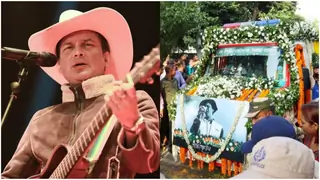


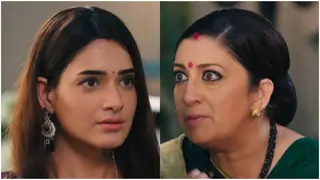

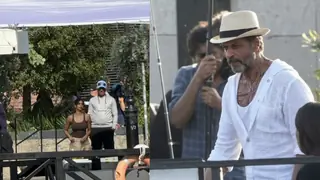

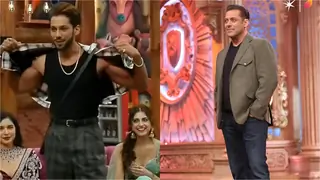
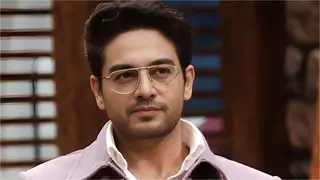


82